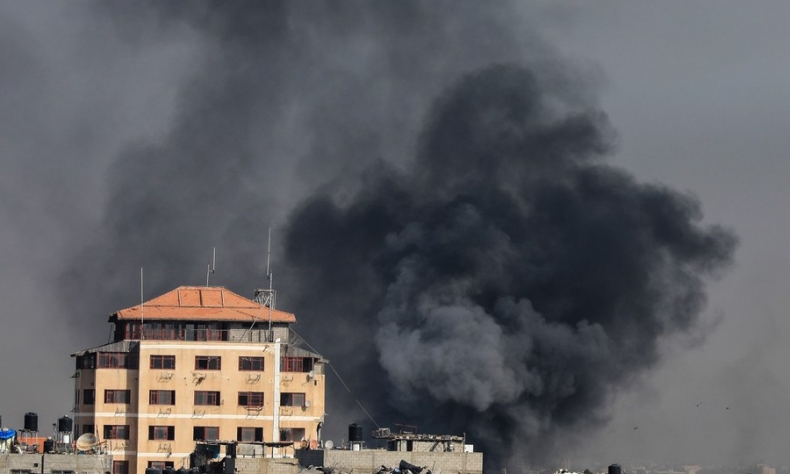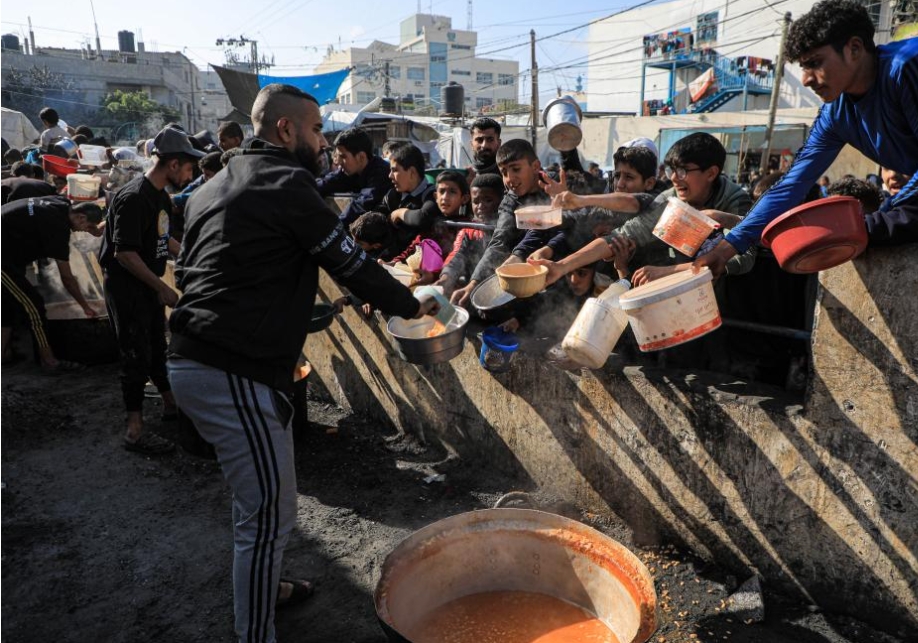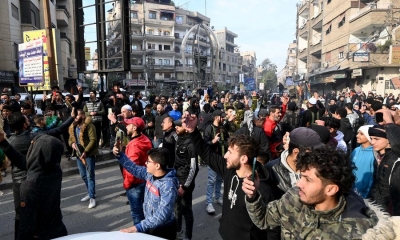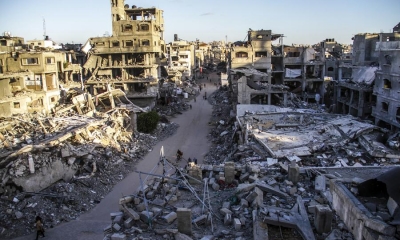Gaza Crisis Threatens Wider War

A fair and just solution to the Palestine Question must be at the top of the agenda for the United Nations and the international community.
The brutal Israeli military operation in occupied Gaza threatens a wider war. Despite urgent calls for a ceasefire from the international community, the situation is rapidly deteriorating with Gaza headed into an abyss of death and destruction.
Gaza and the West Bank are occupied territories as a result of the 1967 war Israel launched against Egypt. Many, however, see all of historic Palestine as occupied by a colonial settler-state.
Palestine and the world wars
For a number of centuries prior to World War I, Palestine was part of the Ottoman Empire. But, after World War I the victors carved the Ottoman holdings into what were called “Mandates.” These mandates were ostensibly under the authority of the League of Nations but provided the pretext for neo-colonial rule by European powers. Palestine fell to the British, Syria to the French, Iraq to the British and Lebanon was later carved out of Syria.
In due course, Syria, Iraq, and Lebanon became independent states while the Palestine Question was turned over to the United Nations after World War II.
The British turned their Palestine mandate over to the United Nations and thus the Palestine Question arose and became contentious. There were two approaches to the issue. One called for the creation of a single bi-national state, “one state” that both Arabs and Jews would live in. The other approach called for the partition of Palestine into two pieces and thus two states.
The latter approach was adopted so Israel declared its independence on its piece of former Palestine while the other piece has remained a bone of contention to this day. In the meantime, Israel has systematically occupied ever larger portions of the West Bank using settlers. Many of these settlers are transplants from the United States and many of these have dual nationality which complicates Washington’s policy.
Palestine and the international law
The international law includes the laws of war and makes specific provisions for the treatment of occupied territory by the occupier. Israel from its inception, however, has defied this and other aspects of international law.
When the international community has attempted to call for the application of international law and relevant United Nations resolutions, Washington has used its veto in the Security Council to block such well-meaning efforts.
In recent days, there have been several cases relating to the Gaza crisis brought before the International Court of Justice at the Hague. Preliminary decisions are expected in the near term but the overall legal process may extend into years before final legal judgments are made, according to experts.
One key aspect of these cases is the call for an immediate ceasefire to stop the carnage in Gaza and to allow for international humanitarian relief efforts. Washington, to its shame, rejects a ceasefire and continues to massively supply weapons to Israel to suppress Palestinians in Gaza as well as in the West Bank.

Domestic politics in the U.S. impedes diplomacy and peace
The political situation in the United States impedes diplomacy and peace. This is a structural problem and fact of political life in the United States whether the issue is Israel, China, Russia, or Iran, for example.
Politicians in the United States are subject to the influence of various lobbies representing different interest groups, which provide essential campaign funding. In the United States, campaigns are extremely expensive to run owing to the costs of media advertising in particular. So, very large sums of money are needed for a politician’s war chest.
In the case of Israel, the very well-financed pro-Israel Lobby in the United States dominates Congress and the White House. Pro-Israel voters are well organized in the Jewish community while sympathetic voters in the fundamentalist Christian community lend their support. Taken together they make the pro-Israel lobby a powerful factor in American politics.
The tragedy in Gaza, however, appears to be impacting public opinion to Israel’s disadvantage. Despite the powerful influence of the pro-Israel lobby on Americans, media polling data shows that the majority of Americans want a ceasefire in Gaza.
American youth, in particular, appear to have increasingly negative views on Israel and this is manifested today across the country at colleges and universities. Even the younger high school generation has been involved in active support for Palestinians.
Despite public opinion for peace, the White House and Congress firmly support Israel’s brutal policies in Gaza and in the West Bank. As noted, politicians are sensitive to their campaign finance and to the mass media which itself is firmly pro-Israel.
A widening war?
Whatever the preliminary rulings may be at the International Court of Justice, the prospects for peace are dim at this point.
So far, it is reported that over 30,000 Palestinians have been killed by the Israeli military operation and some 60,000 wounded. Some experts say that 60 percent of these dead and wounded were women and children.
The scale and brutality of the Israeli military operation have alienated a significant portion of the international community. While Western countries support Israel this is not the case in the Global South or Global Majority as some call Asia, Africa, and Latin America.
Not only has Israel alienated the majority of mankind but it also has provoked particular outrage in the Muslim world. Although not unexpected there are some noteworthy developments. The scope of Muslim outrage is not limited to the Middle East region but extends to Indonesia and Malaysia. The entire global Muslim community is outraged not only by the carnage in Gaza but also by the attack on their religion and the systematic destruction of mosques in Gaza. Additionally, constant Israeli desecration of the historic Al Aqsa Mosque in Jerusalem is a central concern.
The actions of the Ansar Allah movement in Yemen are not surprising seen against this background of the Muslim global community’s concern and outrage. An important new factor is that the carnage and devastation in Gaza have caused Muslims in different branches of their faith to come together. Such unity developing in the overall Muslim world can have significant consequences in the future.
Considering the region as a whole, today there has been an active low-intensity war and it is slowly escalating against Western interests and especially against the United States. For example, groups across the region resisting Zionist expansion and aggression are stepping up their actions targeting United States military bases and facilities in Iraq and Syria. Iraq has asked the United States to depart from its territory but Washington refuses. Syria has asked the United States to leave its territory but Washington refuses.
On top of this situation, the United States and Western allies have launched a bombing campaign against Yemen. Of course, this further pours gasoline onto the fire in the region.
Although there is no crystal ball for this complicated crisis in the Middle East, the prospects are not good at this time. Increasing volatility can well lead to a regional war. Washington and London would like to use Iran as a pretext. In this case, however, the interests of China and Russia are a factor to be reckoned with.
Clearly, the carnage and devastation in Gaza must be brought to a halt. Humanitarian relief is urgent. A fair and just solution to the Palestine Question must be at the top of the agenda for the United Nations and the international community.
The article reflects the author’s opinions, and not necessarily the views of China Focus.
 Facebook
Facebook
 Twitter
Twitter
 Linkedin
Linkedin
 Google +
Google +







